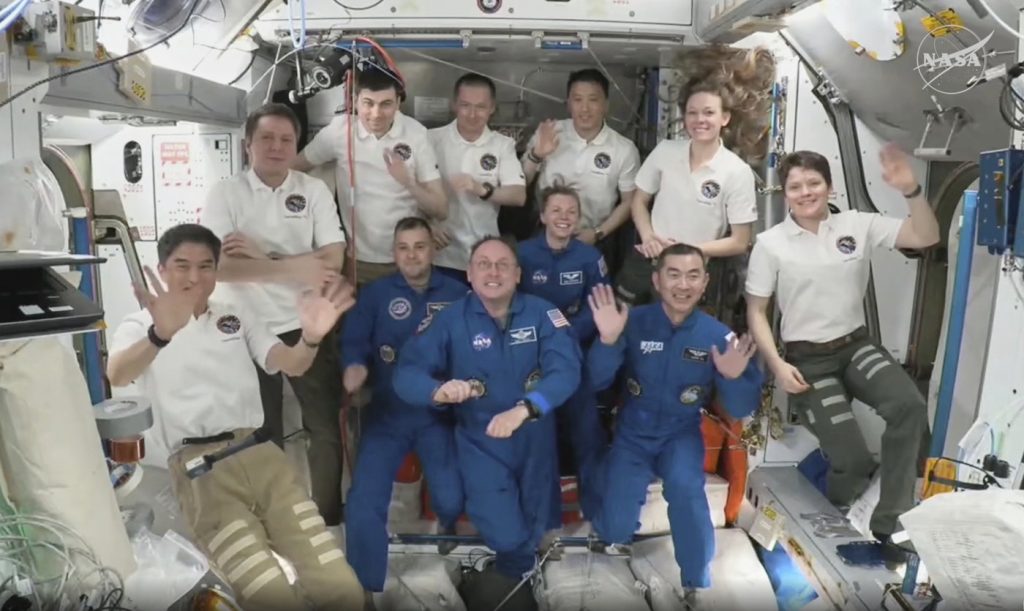CAPE CANAVERAL, Fla. (AP) — On Saturday, SpaceX successfully delivered a new crew to the International Space Station (ISS), completing the journey in a remarkably quick 15 hours. The mission, launched from NASA's Kennedy Space Center, included four astronauts from the United States, Russia, and Japan, who will spend at least six months aboard the orbiting laboratory.
The astronauts joining the ISS are NASA's Zena Cardman and Mike Fincke, Japan's Kimiya Yui, and Russia's Oleg Platonov. This team replaces four colleagues who have been aboard the space station since March. SpaceX is scheduled to bring the departing astronauts back to Earth as early as Wednesday, following a six-month rotation.
The crew's transition underscores the dynamic nature of space missions, as each astronaut on this flight had originally been assigned to different assignments. Cardman and another astronaut were reassigned from a SpaceX flight last year to accommodate NASA's two astronauts, Butch Wilmore and Suni Williams, who were delayed on the ISS for over nine months due to prolonged issues with their planned mission. Meanwhile, Fincke and Yui had been training for the next Boeing Starliner mission, but with the Starliner grounded until 2026 due to technical problems, they opted for this SpaceX mission instead.
Oleg Platonov faced his own challenges, having been removed from the Soyuz launch lineup several years ago due to an undisclosed illness. The arrival of this new team temporarily increases the population of the space station to 11 astronauts, a scenario that is beneficial for ongoing research and activities aboard the ISS.
Upon their arrival at the station, Fincke expressed his excitement by radioing, "Hello, space station!" as soon as the capsule docked at a high altitude above the South Pacific. Cardman remarked on the beauty of the space station, describing it as "such an unbelievably beautiful sight" the first time it came into view.
Although the flight duration was swift by American standards, the Russian space program holds the record for the fastest trip to the ISS, accomplished in an astounding three hours, highlighting the impressive capabilities of different countries in human spaceflight.
This latest mission reflects continued international collaboration in space exploration, as astronauts from various nations work together on scientific research and experiments weighing the impact of microgravity on human health and technology. As this crew prepares for their six-month mission, they will contribute to ongoing studies aimed at furthering human understanding of life in space and enhancing future exploration endeavors.










